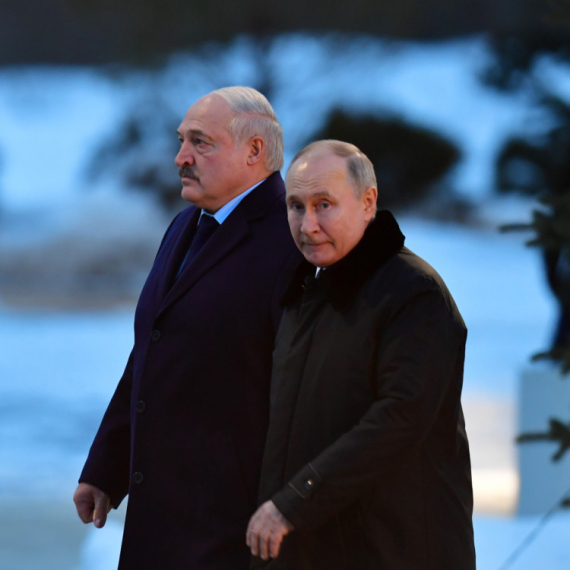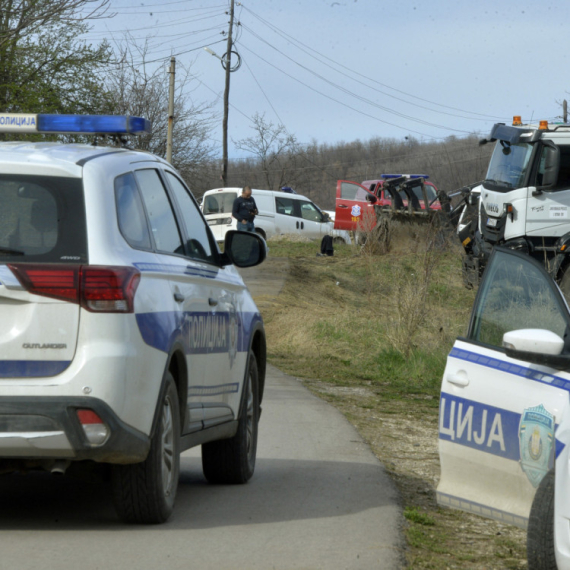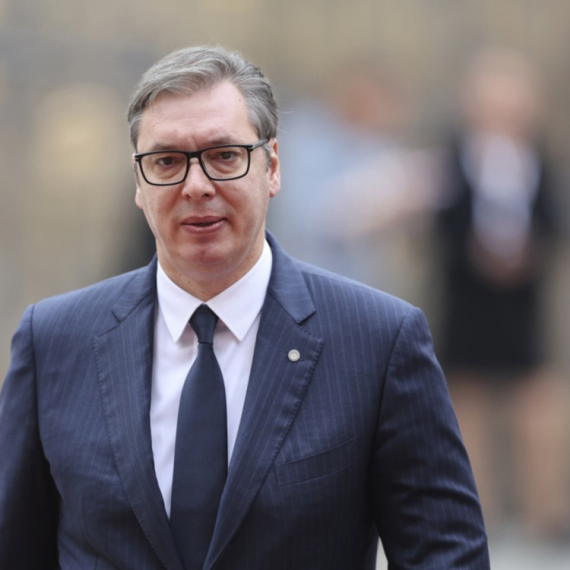Minister: No cuts in salaries and pensions
Finance and Economy Minister Mlađan Dinkić has said that an economic measures package agreed between the ruling coalition partners is "made up of three parts."
Monday, 10.06.2013.
11:19

BELGRADE Finance and Economy Minister Mladjan Dinkic has said that an economic measures package agreed between the ruling coalition partners is "made up of three parts." These are reduction of budget expenditures, structural reforms in public enterprises and improving the business climate, he told the Belgrade daily Vecernje Novosti. Minister: No cuts in salaries and pensions "There will be no cuts in wages and pensions, but their growth will be limited," Dinkic, who is also leader of the United Regions of Serbia (URS), said. He added that the new measures are almost completely agreed with the coalition partners - the prime minister and the leader of the Socialist Party of Serbia (SPS), Ivica Dacic, and the first deputy prime minister and the leader of the Serb Progressive Party (SNS), Aleksandar Vucic. The economic measures to be taken by the government are painful but necessary, as in the event they are not implemented, the financial cuts next year would have to be much more severe, said Dinkic. The first part of the package consists in reducing expenditures in the budget by RSD 40 billion (EUR 350 million), after which there will be no reduction or freezing of wages and pensions, Dinkic said. Second, structural reforms in public enterprises will be continued over the year and later, and third, the business climate will be improved through amendments to the Labour Law and the Law on Planning and Construction, he said, adding that all these measures should be implemented simultaneously if they are to have any effect. Dinkic also said that the government will not impose any new taxes. "The plan is that the budget deficit does not exceed 4.7 percent of gross national product. If we failed to make the move, the hole in the budget would be around two billion euros, and this way it will be one and a half billion," said Dinkic. The finance minister said that the new measures will give effect in the second half of the year and that Serbia is "far from the thought of bankruptcy." A session of the Serbian government (FoNet, file) "Serbia will not go bankrupt" Prime Minister Ivica Dacic has said that Serbia will not go bankrupt - "just as Greece has not gone bankrupt," and that the government will maintain the financial and economic stability. “Given that Serbia survived the war, bombing and sanctions, it will surely survive now. It survived the biggest deficit in the last 10 years at the end of Mirko Cvetkovic's government, it will survive now,” Dacic told reporters after an extraordinary meeting of the Emergency Situations Staff of the Republic of Serbia on Sunday. “Serbia needs economic and political stability,” he said, stressing that he is against creating stories about Serbia facing "some kind of crisis and bankruptcy” all the time. The government will maintain the financial and economic stability by reducing expenditures and deficit and boosting GDP growth, Dacic said. He said that the leaders of the ruling coalition agreed at a meeting on Friday that measures to get out of crisis cannot be based on savings and that the burden of the anti-crisis measures should not fall on the citizens. Dacic said it was concluded at the meeting that Serbia needs to reduce the expenditures of those who spend the most “rather than the wages of those who have nothing to spend.” Tanjug Vecernje novosti
Minister: No cuts in salaries and pensions
"There will be no cuts in wages and pensions, but their growth will be limited," Dinkić, who is also leader of the United Regions of Serbia (URS), said.He added that the new measures are almost completely agreed with the coalition partners - the prime minister and the leader of the Socialist Party of Serbia (SPS), Ivica Dačić, and the first deputy prime minister and the leader of the Serb Progressive Party (SNS), Aleksandar Vučić.
The economic measures to be taken by the government are painful but necessary, as in the event they are not implemented, the financial cuts next year would have to be much more severe, said Dinkić.
The first part of the package consists in reducing expenditures in the budget by RSD 40 billion (EUR 350 million), after which there will be no reduction or freezing of wages and pensions, Dinkić said.
Second, structural reforms in public enterprises will be continued over the year and later, and third, the business climate will be improved through amendments to the Labour Law and the Law on Planning and Construction, he said, adding that all these measures should be implemented simultaneously if they are to have any effect.
Dinkić also said that the government will not impose any new taxes.
"The plan is that the budget deficit does not exceed 4.7 percent of gross national product. If we failed to make the move, the hole in the budget would be around two billion euros, and this way it will be one and a half billion," said Dinkić.
The finance minister said that the new measures will give effect in the second half of the year and that Serbia is "far from the thought of bankruptcy."
"Serbia will not go bankrupt"
Prime Minister Ivica Dačić has said that Serbia will not go bankrupt - "just as Greece has not gone bankrupt," and that the government will maintain the financial and economic stability.“Given that Serbia survived the war, bombing and sanctions, it will surely survive now. It survived the biggest deficit in the last 10 years at the end of Mirko Cvetković's government, it will survive now,” Dačić told reporters after an extraordinary meeting of the Emergency Situations Staff of the Republic of Serbia on Sunday.
“Serbia needs economic and political stability,” he said, stressing that he is against creating stories about Serbia facing "some kind of crisis and bankruptcy” all the time.
The government will maintain the financial and economic stability by reducing expenditures and deficit and boosting GDP growth, Dačić said.
He said that the leaders of the ruling coalition agreed at a meeting on Friday that measures to get out of crisis cannot be based on savings and that the burden of the anti-crisis measures should not fall on the citizens.
Dačić said it was concluded at the meeting that Serbia needs to reduce the expenditures of those who spend the most “rather than the wages of those who have nothing to spend.”



























































Komentari 1
Pogledaj komentare